Carlos Carballo - Labor Central 2.0 - PODCAST TRANSCRIPT
June 18, 2025 at 10:00 a.m.Editor's note: The following is the transcript of a live interview with Carlos Carballo of Labor Central. You can read the interview below or listen to the podcast.
Intro: Welcome to Roofing Road Trips, the podcast that takes you on a thrilling journey across the world of roofing. From fascinating interviews with roofing experts, to on-the-road adventures, we'll uncover the stories, innovations and challenges that shape the rooftops over our heads. So fasten your seat belts and join us as we embark on this exciting Roofing Road Trip.
Heidi Ellsworth: Hello and welcome to another Roofing Road Trips from RoofersCoffeeShop. My name is Heidi Ellsworth and we are here today to talk about one of the most important cultural parts of roofing today and that is our amazing sub-crew culture and Spanish-speaking community.
I have to tell you, we have been so excited to be part of so much with our En Español on RoofersCoffeeShop and an incredible partnership with Labor Central. That is who we have here today. Carlos Carballo is here from Labor Central. Carlos, welcome to the show.
Carlos Carballo: Thank you, Heidi, it's an honor. I'm so excited about being here with you. Looking forward to the [inaudible 00:01:08].
Heidi Ellsworth: I have to tell you, I am so excited to have you on here. This is really great stuff. I'm telling you what, I think the industry has come so far. We are really opening this industry up to such rich diversity and such rich culture.
Labor Central is really at the forefront of solving some problems on communication to correct the labor shortage overall. So let's start with introductions and a little bit about Labor Central. So if you could introduce yourself, tell us what you do with Labor Central and what is Labor Central?
Carlos Carballo: Sure, yeah. So my name is Carlos Carballo. I'm an entrepreneur at heart.
Heidi Ellsworth: I love it.
Carlos Carballo: Labor Central is not my first company that I started. I did a few ones before, some of them pretty successful. One was acquired by Verizon back in the day.
Heidi Ellsworth: Ooh, congratulations.
Carlos Carballo: Science degree, I've always been focusing on technology. I also have an executive MBA here from SMU. So technology has always been my passion for the very beginning. I also worked for the biggest global consulting companies like Accenture, Capgemini or acle and so on. Now, with Labor Central, focusing on the technology part of it, but operation. I'm actually one of the original co-founders.
Heidi Ellsworth: I love it.
Carlos Carballo: Where Jason Stanley and I got together for, almost five years ago and talked about the ideas. I was trying to solve a similar problem on the trucking side and that's where the idea came from. It's like division of all these truck drivers and roofers looking for work. And then the contractors also looking for labor and they go in so many places.
And so we thought, hey, let's centralize this thing. So that's what Labor Central is offering, is a central place, a marketplace where they come together. And start, not just communication, but we're trying to formalize the process of even all the way to managing those roofing projects. So that's how it came about.
Heidi Ellsworth: So let's talk a little bit about that. Really the technology behind Labor Central is similar. And I know I'm going to under simplify this or oversimplify it, I'm not sure which, but is kind of like an Uber for labor.
So if you are a contractor and you're looking for help and you're looking for crews, you can go on Labor Central and find crews who fit what you need for the job. Same thing, crews can find contractors and find jobs for them. So it really helps both parties grow their business.
Carlos Carballo: It's such a simple concept, centralize this thing. It is not easy to implement because institutions like ourselves or companies, where do you start first? You can have the great technology, but if you don't have that data in it, you start having the wrong crews or even the wrong contractors there, then the business model would fail.
So in the case of Uber, as an excellent example, that's how Jason by the way, often describes the platform, the Uber. So we are the Uber of Labor Central. But yeah, no, we've seen the success over the years and so I'm sure we're going to talk about Labor Central 2.0, which is where we are. Because yeah, over the four years we learned so much in that.
Heidi Ellsworth: Well, let's talk just a little bit about some of the trends that you're seeing in the roofing space. I mean, I know you come from the technology space. Jason Stanley obviously has generational in roofing. But what are you seeing with sub crews and the growth of sub crews within the roofing industry? And really kind of how does that labor pool look? What's all happening out there?
Carlos Carballo: Well, it's interesting. When I came back from the IRE and after that, it was so overwhelming. It took me a while to kind of settle down from all the requests that we got around labor because now the issue or the situation with labor shortage is even worse, right?
Heidi Ellsworth: Right.
Carlos Carballo: All this new laws, strict laws that are coming in. And so when you talk about the trends of labor shortage, everybody, it's like the boomers, the people are retiring. We still have those challenges and now they're just even worse.
We talk about the normal things. People are retiring. A lot of the new people that are coming in want to go to college for example. Trade schools are not seen as prestigious, if you will, as going to college, et cetera. So we still have those same trends and when you inject technology, you can now even see.
Again, when I talk about technology, I may talk about software. But in reality, when you talk about technology and roofing, you see artificial intelligence and automation and robotics now playing an important part.
Heidi Ellsworth: Yes.
Carlos Carballo: You see it now as a joke when you see some of these roofers laughing at robots doing the work because these roofers are so efficient, so fast, they can put down the material so fast. And you see the robots installing this layers of whatever material it is very slowly.
We see that trend though, that eventually that's going to solve some of these problems for especially the roofs that are flat for example. That's the kind of technology we see.
But labor shortages, challenges are still there. That we even see it even more now. That's a good thing for Labor Central, but it's not good for the industry. But we're kind of in the middle of it and that's it.
Heidi Ellsworth: Right. So let's talk a little bit about that. Let's talk about the technology in the middle. So we have a very strong sub crew culture happening in roofing and that wasn't that way 20, 30 years ago. But we have really seen sub crews growing and are playing a very fundamentally important role in roofing today.
There's still a lot of contractors who have never really worked with sub crews before who are thinking, I need to do this. I'm having a hard time finding labor. I can't do W-2s on everyone. I'm going to need to get some help.
How does your technology help the contractors get in touch with these sub crews? Really kind of, there's probably a lot of questions, Carlos, between vetting and insurance and all those kinds of things. How does the technology really help that?
Carlos Carballo: It's interesting that you mentioned vetting. That's number one thing. I was just talking to a big partner the other day. Vetting is the number of thing they talked about.
I think to answer your question is we are trying to, through technology, especially now with artificial intelligence, is to automate a lot of those things. Labor Central, the central means that we want to be the center, not just the platform, but place in general where people come together.
And so when we talk about technology, all this technology with AI is out there now. What happens though is that on both sides, even the contractors are a little bit hesitant to adopt it. Definitely the roofers.
So the roofers for example, they want to get text messages, they want to be able to call contractors. And so it's not the same as if we could easily plug in. And we do have some of that, what's called an AI agent, an artificial intelligent agent that could answer all the questions from the roofers, but they want to feel like they're talking to a person.
And so what we're trying to do is that even though we have all the technology in the background, because now we're so advanced on artificial intelligence, we are trying to inject and put the layer of personalized and talking to human, kind of in the front. So that we can slowly but surely, hopefully, bring these people into and educate them on how it is better to use labor-centric platforms instead of going to go to Craigslist and see posts or from the contractors to post those jobs.
In reality, we're centralizing this thing. We're doing a lot of still the work that the contractors still do. We are doing that ourselves using technology. Or our team to go and post those jobs to say, "Hey, there is work in this area." Because we do talk to our contractors. So we post the Craigslist. And if that job is not available anymore, we still encourage those roofers to sign into our platform.
And that's how we constantly build that platform so that at the end, contractors can have in the future, connection with these new roofers and the roofers can have connections to the contractors. That's how we use technology. It's a combination of thing to make sure people is still using the platform.
Heidi Ellsworth: Right.
Carlos Carballo: It's tricky.
Heidi Ellsworth: Wow. It is tricky. It is tricky to get everybody working on the same way. But we are as a society, we're getting used to working in apps and we work in them all the time. And I mean, just think about it, everything's on an app now, Facebook, all these different things that we're working with. So I think people are used to that.
What are some of the things with Labor Central 2.0? Because I know since IRE you have all come out with that next level of Labor Central. What are some of the new things that are part of Labor Central 2.0? And also that are going to help with this communication?
Carlos Carballo: For sure. I think overall, something that the users will not see immediately, they will see it overall, is the new platform. The backend technology is completely different. We redesigned this thing from the ground up and so the technology we had was great to take us to this point. It did its job, it collected all this information. It centralized and even did some rudimentary communication between the two parties.
So the number one thing we did was to take this platform to an enterprise level. For example, one of the things that the old platform did not do is allow our partners to call the platform via what we call APIs or kind of a program, is an interface way, at least a way to call a platform from their own software.
So the big distributors or manufacturers, they can continue using their application, their mobile application on their website. It will look like their website and it will be their website and mobile. And they will make requests to our platform and our data will be provided to them. Our platform didn't allow them to do that back then. That's one of the biggest things that our platform offers.
The ability to grow because that's what we're ready for. We have now the technology to grow. I mean, we can handle every single roofer in the United States with the technology that we have now. So that's one thing. The ratings, we did have some kind of ratings, very light version, but now we enhance that tremendously.
We adopted the process of submitting a bid first, just like you do an Uber because we didn't want to just somebody get mad at somebody and being able to provide a bad review. No. So you at least got to have a good project in place. So rating was enhanced.
The translation was a big piece. The translation was like, "Okay, well we need this." And we had translation in our website, but not in our application. And so all those, what I call little things, they're not so little, but I call it little things. But the big thing is, Heidi, is that Labor Central 2.0 is free now.
Heidi Ellsworth: Wow.
Carlos Carballo: Yeah, that's a huge deal because yes, we got a lot of engagement and we have a lot of people who are trying it and using it, but we want to again take it to the next level. And so some people who were paying $89 to a partner or $99, now it's free. It's better and it's free.
Heidi Ellsworth: That's great.
Carlos Carballo: Because again, we're trying to grow. We're trying to get the word up there. It's like to really implement the vision that Jason and other co-founders had, including myself, it's like we got to help these people, not just the contractors. Because they need help in finding labor. But also the roofers, they need help in finding labor. So those are the big things that we had in.
There's so many things. The whole design change. You got look at it, it looks like you're using Instagram. Because you got buttons and the response.
Heidi Ellsworth: Nice.
Carlos Carballo: You got a map, even interactive maps. Or from the contractors, you can see where the labor roofers are. And for the roofers you can see where the projects are. So all those things. We have all different sections for training. We have a section for events, et cetera. So there's several.
And the whole messaging thing, we're trying to encourage the users to stay in the platform. They can still text back and forth if they want to, but we enhance that messaging capabilities to have real time messaging, real-time translation. Because what we're trying to do again is to collect all this data and see what else we can help the community and users with, to identify those needs. Big things.
Heidi Ellsworth: Congratulations. That is a huge amount of work. And I love how you are listening to your audiences, whether it's the roofers or the contractors looking for sub labor or sub crews should say. Really bringing all of that together to hear what they needed and then now providing it free so that people can connect. I mean, what a gift to the industry.
Carlos Carballo: Yeah, it is a big thing. Believe me, our investors, they're all excited about it because it does take money. A lot of people are asking, "So how are you guys going to make money?" And we do have, I mean, we have to survive somehow to provide this benefits to our users. And so we do have some ideas, but our investors are all in about taking this thing to the next level.
Heidi Ellsworth: Yeah, that is great. Okay, so one of the things we do know is that there is a very, about 30% of the roofing industry is Spanish speaking. And such a rich culture and we've really seen so much growth in understanding bilingual, having a bilingual industry and really connecting. Talk to me a little bit about how technology is bringing all these different cultures within roofing together.
Carlos Carballo: For sure. Did you say, the percentage you mentioned sounds low, I think.
Heidi Ellsworth: It does sound a little low, doesn't it? Yeah.
Carlos Carballo: I've seen some stats going higher than that. And it's not surprising, especially by the way, in some areas of Texas. There's key areas.
Heidi Ellsworth: Yeah and I would say field, I mean if we're talking about gentlemen in the field, men and women in the field, that you're right. Who actually installers is going to be closer to 60, 70%. Sorry, I was saying the whole industry in general.
Carlos Carballo: Yeah, okay. That makes sense. And you're correct. I was just listening to another podcast who talked about the importance. Actually this is a meeting I was having with IRE because we're involved with IRE. And we were talking about the importance of not just getting the installers engaged, but the importance of getting the Hispanic at the different levels, including the owners of the company.
So we were talking about, okay, do you provide more events in Spanish? And how do we get them engaged and how do we provide the services that they need back to the Hispanic community? And one of the things that it was established, everybody agrees there, everybody being Hispanic in the group, is we realized that it's not just the language.
For example, in the application, that's one of the things. Sure, of course is the first thing we did is to make it available in Spanish, the whole application. So it's not just translation on the messaging, but a Spanish speaking can go and download the application, set it to Spanish and everything will be from Spanish. So that's number one.
But from the culture, because it's not just Spanish, but it's not just the language, from the culture perspective, you got to be able to and that's what we're working on, got to be able to play the music that Hispanics like. Talk about events that that Hispanics are into. Food or jokes.
I mean, one of the things I did through my consulting career is travel all over Latin America and deploy data warehousing solutions all over Latin America. And again, it is not just the language. Of course I speak the Spanish language, but are you able to talk about soccer instead of football?
Heidi Ellsworth: Football, yes.
Carlos Carballo: Right. So those kind of things. Are you able to speak up your mind instead of being so back? So all those kind of things, it's like we engage.
So from the technology perspective, yes, all those things, we kind of sprinkle a little bit of the Hispanic culture, not just the language, into the application. And we constantly, to your point, you acknowledge the fact that we do constantly talk to both sides to sprinkle that into the application. As well as being involved in Hispanic events and the community. Like IRE for Latinos, et cetera.
Heidi Ellsworth: Great.
Carlos Carballo: So we do that as well.
Heidi Ellsworth: Exactly. I think that is really what is changing in, there's just this inclusiveness. And to your point, I think culture is closer than we think because in the roofing industry it's very family, it's very generational. A lot of small businesses.
Well, that's the same. And what's important? Our families are important and that is such an important part of the Latino-Hispanic culture. I think there's a lot more in common than not. And that's the part where I think technology can bring that together and really start having those conversations in a better way.
Carlos Carballo: It's an excellent point because one of the things that was mentioned in this meeting is like, "Okay, culture are great and how do you maintain relationships with this community? And how do you give them what you want?"
And it's important to realize that the Hispanics are not trying to segregate themselves. At least that's what we see. Because at the end of the day, we're all in this country, we all love this country and we don't want to be over here.
Heidi Ellsworth: I know, exactly. Just like women in the industry. We're like, "No, it's all, we're all one thing, right?" Yeah, one industry.
Carlos Carballo: Exactly. So it's an interesting and challenging sometimes balance that you have to maintain. But to your point, yeah, roofing is a family-oriented kind of industry. So the Hispanics fit in very well there.
Heidi Ellsworth: Yeah, it is. I think it all goes together. So let's just, if you can share some examples of some crews and contractors who have connected through the technology and are seeing success. And what's some of the feedback that you're receiving?
Carlos Carballo: I mean, in fact, this is funny. This has happened in many occasions, where one of our investors was kind have a company or a friend that he didn't even know at that time that was looking for labor. And it just happened out of the blue in a conversation that he said, "Hey, I was looking for labor and I just ran into this platform. It's called Labor Central, have you heard of it?"
"I just went there and found somebody in Miami, Florida. And it stopped me from driving all the way over there and take my crew. I was able to talk to that team. And after I found them, I was able to talk to them and get the contact information and establish a relationship." And the other gentleman goes, "Wait, Labor Central, what? You did not know about it? Yeah, I'm actually involved." And he didn't even-
Heidi Ellsworth: That's awesome.
Carlos Carballo: But yeah, we seen it. I mean here in DFW, I live pretty close from DFW, there are groups that the entire sub crew has been found in Labor Central. So it's kind of amazing. Jason and I always talk about, especially Jason, he always scratches his head. It's like, "How can you have people looking for crew and some crew that are not looking for crew sometimes and some crews coming to them and they don't even know about this platform?"
So we have a lot of examples like that where a mix has happy to hear that, "Hey, okay, yeah, this is the right thing. We are in the right industry for sure." Because we love it, but definitely in a place to solve the right, we have the right solution to solve this big problem. Plenty of reasons like that.
Heidi Ellsworth: I think it makes so much sense. It's connecting the people who can build each other's businesses in a way that just doesn't happen by just word of mouth. And you need this repository where you can go and find the contractors and the roofers and the installers in the areas that you're looking.
And especially, we are definitely national, if not global industry now. Where people are looking, they may be in Dallas, but they may be doing a job in Oregon for a national account and they need to find a crew in Oregon. And this allows them to do that and be able to have confidence.
Carlos Carballo: We have contractors, brand new, people who have been in other industries and then they knew somebody, a cousin or uncle who went in the roofing and they got them all excited. Now they have the money because they sold the company. Coming in and said, "Hey, okay, I got some of the business knowledge to start, but labor is a big thing."
We talk to them and say, "Yeah, the idea is just come to Labor Central as you start growing your business and then you can hire people permanently." In the middle and in the meantime you can come in and start your business day one.
In addition to labor, by the way, that's why the concept, I love the word accelerator, like in this case is a business accelerator or business in a box. The biggest thing is labor. We can even give you a template to start your own business. Labor being the biggest challenge, you can come and use Labor Central for that. In other words, we're kind of removing that big obstacle that a lot of people have when they're starting their own business, right?
Heidi Ellsworth: Exactly. Exactly. Okay, so let's talk about getting started. I think that technology is sometimes intimidating to the trades. I started with EagleView and nobody wanted to even think about getting a roof measured from the sky, but now it's every day because it's easy. And I know Labor Central is like that.
So let's start first of all with crews. Crews, installers who want to get more work, how do they get started on the platform?
Carlos Carballo: They just sign up. They go to LaborCentral.com and because it's now free, just play with it. Play with the application. Please provide us feedback. There's a place there where you can go and provide us feedback.
In this version, we tried to make it as easy as possible. We got people who are on the roof giving us feedback, "Hey, when I'm up there, I want to be able to click with one finger. And on the left-hand side, it's the most efficient way. The slide this way, et cetera."
So we consider all those factors and inject those into the platform to make it very easy to use. So to get them started, yes, just go to both sides. The roofers go to LaborCentral.com.
Heidi Ellsworth: Yeah, same thing. Okay.
Carlos Carballo: Sign up to find projects. And from the contractor sign up to find crews. Very easy to use. There's going to be three, four little buttons at the bottom. Find crews and your projects from the contractor's perspective. And from the crews, find jobs or find projects and the projects that you are bidding on.
We'll see. And on the top you will see all the buttons where you can go and say, "Okay, what are my offers?" They're going to be offers from different vendors. There's going to be a training section, et cetera.
Heidi Ellsworth: Including things from RoofersCoffeeShop.
Carlos Carballo: For sure. We've been working with you guys for a very long time.
Heidi Ellsworth: Forever.
Carlos Carballo: We're excited about having a special section for RoofersCoffeeShop in our application. So all good.
Heidi Ellsworth: Well, I tell you what, we love the technology. We love you guys and we really believe in this. We believe in that this kind of technology can bring people together for success and that's really what Labor Central does.
It brings all the right people together for success. And I'm not talking just the contractor, installer, but also the end users. So those homeowners and building owners are going to be pretty happy about this too.
Carlos Carballo: For sure. Yeah, it is bringing in the efficiency, right?
Heidi Ellsworth: Yeah.
Carlos Carballo: So the gains get distributed at all levels for the contractors and roofers and yeah, homeowners for sure. They get to hopefully, they get the savings that this efficiency brings in.
Heidi Ellsworth: It really does. Well, Carlos, thank you and congratulations. Thank you so much for being on today and sharing all of this. We're really excited for you.
Carlos Carballo: Thank you, Heidi. We are certainly excited as well and looking forward to working with both sides, roofers and contractors. So sign up.
Heidi Ellsworth: It'd be great. And you can find all this information in the Labor Central directory on RoofersCoffeeShop. There is so much great information there. There's screenshots, videos, you can see how it works. And of course it's bilingual.
So be checking it out. Carlos is going to be back on our Spanish podcast also. So really it's bringing everything together and we so appreciate it. So one last time, Carlos, thank you so much.
Carlos Carballo: My pleasure, Heidi.
Heidi Ellsworth: Thank you. And thank you all for listening. What a great episode. Check it out, it's free. Get on and get those. Start working on that labor problem that we all have.
Please check out all of our podcasts under the RLW section. Be sure to go onto your favorite podcast channel and subscribe and set those notifications so you don't miss a single episode. We will be seeing you next time on Roofing Road Trips.
Outro: If you've enjoyed the ride, don't forget to hit that subscribe button and join us on every roofing adventure. Make sure to visit RoofersCoffeeShop.com to learn more. Thanks for tuning in and we'll catch you on the next Roofing Road Trip.

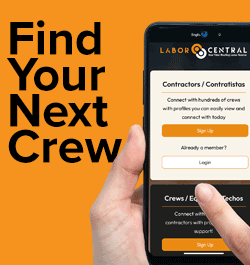







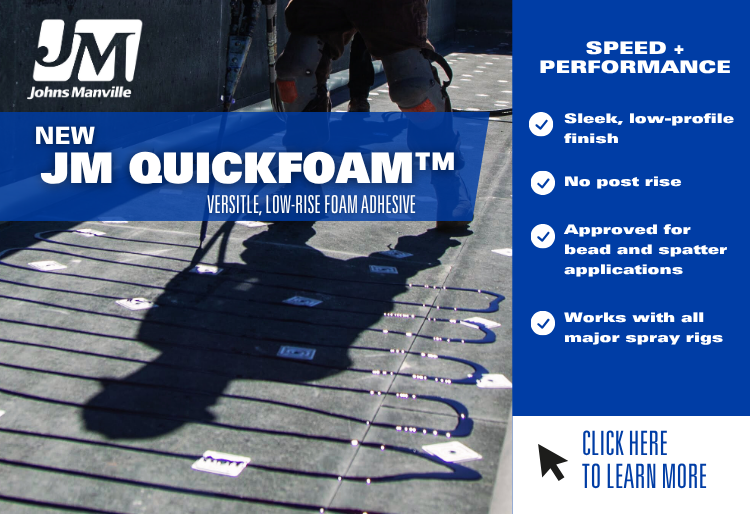



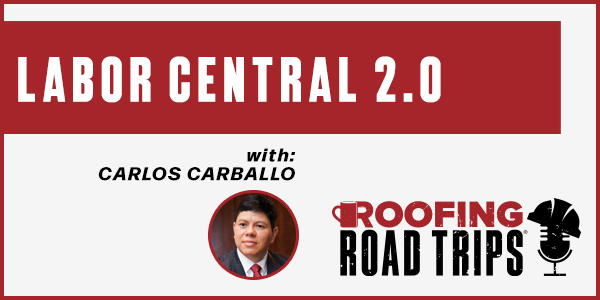
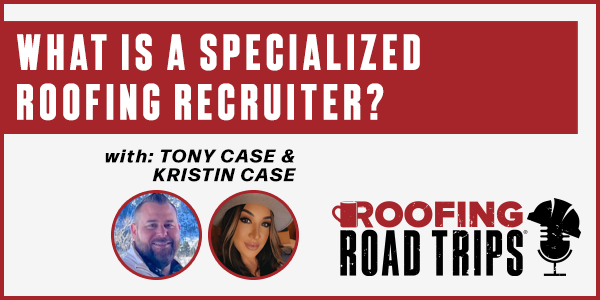
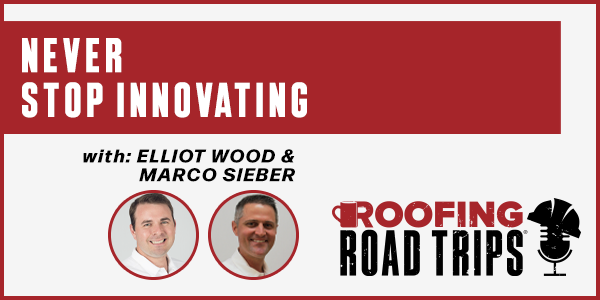
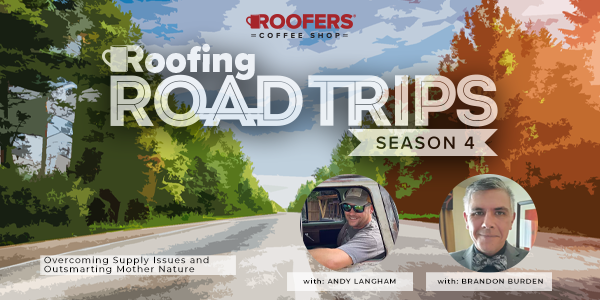





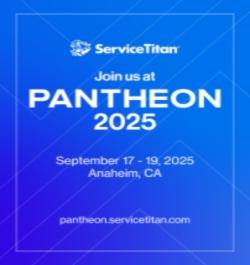
Comments
Leave a Reply
Have an account? Login to leave a comment!
Sign In